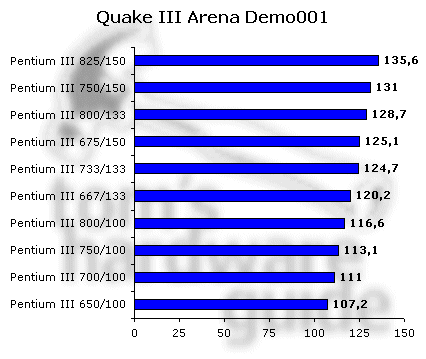Double 'S' schrijft dat ze bij Tom's Hardware Guide weer lekker bezig zijn geweest met het testen van de impact van verschillende FSB snelheden op de performance. Ze zijn alleen vergeten om wat rambus geheugen te testen ![]() .
.
Conclusion
Both gaming benchmarks have particularly shown the importance of the FSB. It's still as present and mighty as three years ago, when we were running 66 MHz systems at 75 or 83 MHz. Even today it's something like an unwritten law: Using a higher FSB will rise performance about one performance step.
Using 140 instead of 133 or 112 instead of 100 MHz will give you more performance with little risk. 150 MHz can be achieved quite safe - provided that you are using quality components (especially motherboard and RAM).
You will have to spend some days on testing the new speed setting - in fact, the longer the better. If only one component fails (e.g. if writing CDs is not possible at your common speed), step back one FSB step.
Who Really Benefits from 150 MHz FSB?
Basically everybody, but gamers and users of high end software will benefit more. Overclocking always means a kind of adventure. Running hardware at 150 MHz is interesting for most users who do not necessarily need their computer, but want more performance - overclockers, gamers and performance freaks. All others should be very careful, particularly those who require a working computer.
 |
